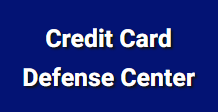Contact us: (212) 591-0400
DEBT DEFENSE ATTORNEYS
New Paragraph
We are New York State defense attorneys defending consumers against creditors in courts located in New York State. We defend lawsuits from credit card companies, banks, and collection companies.
We also stop bank account restraints and eliminate wage garnishments and liens of all types for both businesses and individual consumers. We defend against predatory banks, debt collectors, and collection attorneys using unique and individualized strategies on a case-by-case basis.
Did You Know That...
You Have Three Choices for Dealing With a Lawsuit from a bank or other creditor:
When a creditor sues you to collect a debt you haven't paid, and you don’t intend to file bankruptcy, you have three basic choices:
- FIRST: Do nothing! This will obviously allow the creditor to obtain a default judgment against you and then use that judgment to place a lien on your real property, seize your bank accounts, restrain your salary, go after your customers and clients if you sre self employed or your business is the subject of the law suit.
- SECOND: Defend the lawsuit yourself, which you always have an absolute right to do.
- THIRD: Hire an attorney to represent you in the lawsuit. And either beat it or reduce the claim and settle it.Debt collectors are looking to seize your bank account, salary, and other assets, and we can stop them.
If you are being sued, or if the debt collection attorneys are contacting you, call us right now, and we will give you consult with you about the case and explain your rights and options before things get worse. No charge for consultation.
-
10 Rules Debt Collectors Must Follow
HERE ARE 10 RULES THAT A DEBT COLLECTOR MUST FOLLOW WHEN CONTACTING YOU ABOUT AN UNPAID BILL:
1. No Early Morning or Late Night Calls
2. No Calls at Work, Once You Request It
3. No Repeated or Continuous Calls
4. No Verbal Abuse
5. No Informing Friends, Neighbors, Co-Workers, or Your Family About a Debt
6. No Collecting on a Debt Larger Than You Actually Owe
7. No Dire Threats
8. A Debt Collector Must Send Written Notice of a Debt
9. A Debt Collector Must Honor a Written Request for No Further Contact
10. The Debt Collector Must Verify All Disputed Debts
-
Title or question
Describe the item or answer the question so that site visitors who are interested get more information. You can emphasize this text with bullets, italics or bold, and add links.
-
Can I stop a debt collector from contacting me ?
You can stop a debt collector from contacting you by writing a letter directly to the collector. You should send the letter with a certified return receipt requested for proof of receipt. Once the collector has received the letter, they may not contact you again except to say that there will be no further contact, or to notify you that the debt collector or creditor intends to take some specific action (i.e., you may be sued, or, your wages may be deducted by the amount owed to satisfy the debt).
-
May a debt collector continue to contact a consumer if the consumer believes he or she does not owe any money, and is disputing the debt?
A collector may not contact a consumer or continue any collection activities, if, within thirty (30) days after the consumer receives written notice of the debt, he or she sends the collection agency a letter (recommended with a certified return receipt request) stating that all or part of the debt is being disputed. However, a collector can start collection activities again if a consumer is sent proof which verifies the debt, such as a copy of a bill for the amount owed. 1 For more information about disputing a debt, and debt validation, please refer to the New York State Department of State Division of Consumer Protection’s Consumer Law Help Manual Chapter entitled “Debt Collection.”
-
When a consumer sends the debt collector a dispute letter what should they expect?
Consumers should note that sending a dispute letter to a collector does not make the debt go away if the consumer actually owes it. The consumer can still be sued by the debt collector or creditor. 2 The Fair Debt Collection Practices Act also mandates that, if a consumer submits a dispute in writing, the collector must cease collection efforts until it has provided written verification of the debt. There is no time limit for a debt collector to validate the debt.
-
What Happens When You Retain Us
When You Retain Us, We:
- Demand Proof of Standing (The Right) To Sue You:
- Demand Proof Of The Debt
- Demand Proof Of The Amount Of The Debt
- Object To The Improper Offer of Hearsay Evidence
-
What Happens When You Retain Us
When You Retain Us, We:
- Demand Proof of Standing (The Right) To Sue You:
- Demand Proof Of The Debt
- Demand Proof Of The Amount Of The Debt
- Object To The Improper Offer of Hearsay Evidence
-
What Happens When You Retain Us
When You Retain Us, We:
- Demand Proof of Standing (The Right) To Sue You:
- Demand Proof Of The Debt
- Demand Proof Of The Amount Of The Debt
- Object To The Improper Offer of Hearsay Evidence
-
What Happens When You Retain Us
When You Retain Us, We:
- Demand Proof of Standing (The Right) To Sue You:
- Demand Proof Of The Debt
- Demand Proof Of The Amount Of The Debt
- Object To The Improper Offer of Hearsay Evidence
-
What Happens When You Retain Us
When You Retain Us, We:
- Demand Proof of Standing (The Right) To Sue You:
- Demand Proof Of The Debt
- Demand Proof Of The Amount Of The Debt
- Object To The Improper Offer of Hearsay Evidence
-
What Happens When You Retain Us
When You Retain Us, We:
- Demand Proof of Standing (The Right) To Sue You:
- Demand Proof Of The Debt
- Demand Proof Of The Amount Of The Debt
- Object To The Improper Offer of Hearsay Evidence
Contact Details
Business Hours
- Mon - Fri
- -
- Saturday
- -
- Sunday
- Closed


